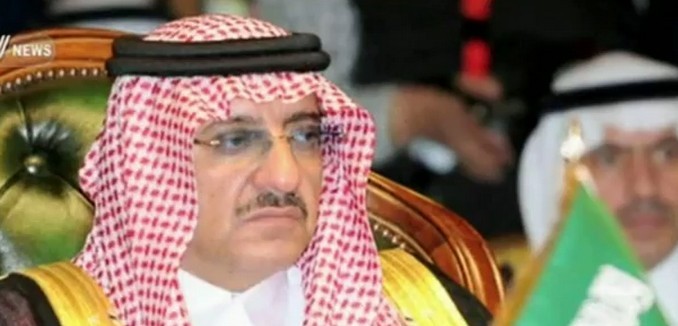Saudi Arabia’s new king, Salman bin Abdulaziz, announced a shakeup of his government Tuesday night. The powerful interior minister, 55 year-old Prince Mohammed bin Nayef, has been appointed crown prince, in place of his half-brother Muqrin bin Abdulaziz. This is part of a significant shakeup that included the replacement of the foreign minister and other senior officials.
The 69-year-old Muqrin also was dismissed from his post as deputy prime minister, a position that will also be held by Mohammed bin Nayef. Mohammad will also keep his duties as interior minister and head of the security and political council.
Muqrin’s dismissal is the latest sidelining of high-ranking officials from the period of the previous king, Abdullah, who died on January 23 and was replaced by 79-year-old Salman. Muqrin is the last surviving son of the kingdom’s founder, Abdulaziz ibn Saud.
This means that the current king will be the last of Abdul Aziz’s sons to rule the kingdom, after five of his brothers did so since 1953. Crown Prince Mohammad will be the first of the second generation—the generation of Abdulaziz’s grandsons—to lead the conservative Islamic kingdom. The appointment also strengthens the power of the Sudairi branch of the royal family—the branch of King Salman, whose influence waned under Abdullah.
Another decree issued by King Salman stated that his son, Prince Mohammed bin Salman, who is in his early 30s, will be the deputy crown prince. He will retain his position as Minister of Defense, where he recently played a key role leading Saudi airstrikes against rebels in Yemen.
The two new appointees had a crucial role in the decision to begin the air campaign against the Iran-backed Houthi rebels in Yemen, and Mohammed bin Nayef was a key part in the fight against terrorists inside the kingdom. Therefore, according to analysts, the two appointments may represent a tougher foreign policy, especially towards its main regional enemy, Iran.
Mohammed bin Nayef is known to have very good relations with the United States, raising the possibility that the appointment was intended to help counter the trend of American rapprochement to Iran. According to the Arab website Noonpost (Arabic link), the new crown prince also has good relations with Turkey and Qatar, and has specifically tried in recent months to foster closer ties with Turkey.
In another significant change, the Saudi Ambassador to the U.S., Adel al-Jubeir, will be the new Saudi foreign minister. He will replace Prince Saud al-Faisal, who wanted to leave his post for health reasons. Al-Faisal, who had held his position since 1975, will now be an adviser and special envoy of the king, as well as oversee foreign affairs.
The al-Jubeir appointment is relatively surprising, since the foreign minister is usually a member of the royal family. Al-Jubeir was targeted in a foiled assassination attempt by an Iranian agent residing in the United States. He was also the public face of the Saudi government to the American media, explaining the goals of the military campaign against the Houthis.
In addition to signaling committing the kingdom’s continued efforts in Yemen, the shakeup may also signal a more conservative religious orientation to the Saudi government. The Wall Street Journal reported (Google link):
Along with his moves to curb Iranian influence, King Salman shored up domestic support by appeasing Saudi religious conservatives who had come to view King Abdullah’s tentative modernization drive, which included the creation of a coeducational university, with open hostility.
[Photo: CCTV / YouTube ]




